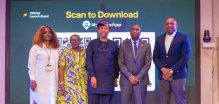At the end of the sixty-day period - the document proposed by the ministerial group will be submitted to public consultation and will be subsequently sent as a proposed decree to the executive. The executive will review the recommendations made by the working group.
Secretary of Computing Policy at MCTIC - and coordinator of the working group, Maximiliano Martinhao said the establishment of the EDB provides an opportunity to enhance the country’s growth through digital transformation - which will provide new job opportunities across a diverse range of sectors.
President of National Telecommunications Agency, Juarez Quadros, stressed that the EDB should respond to the new technologies which are emerging such as Internet of Things (IoT) and firth generation technology. He said: "We are initiating the implementation of 4G, but 5G is approaching, announced for 2020, and will demand from the digital market a much more delicate infrastructure."
Brazil is expected to present its plan for its National Internet of Things Plan in the second half of 2017 - the plan aims to address the impact on society, the regulatory environment and instruments of tax reduction, infrastructure and connectivity, innovation and ecosystems - as well as training to train professionals in the areas of investment, financing and internationalization.
It was further disclosed that Brazil is behind in the world scenario of digitization policies. This claim was made by Minister of Science, Technology, Innovation and Communications, Gilberto Kassab. He added that the launch of the Geostationary Defense and Strategic Communications Satellite (SGDC) will allow internet service to be offered throughout the country, and stressed that the modernization of the General Telecommunications Law will help boost the competitiveness of the economy.
"The government must maintain a permanent dialogue, so that there is an exchange of ideas and a collective gain in the incorporation of public policies aimed at strengthening the digital agenda," said Kassab. The strategy will be a plan, which will include most of the government programs linked to the digital economy and Information Technology.


















